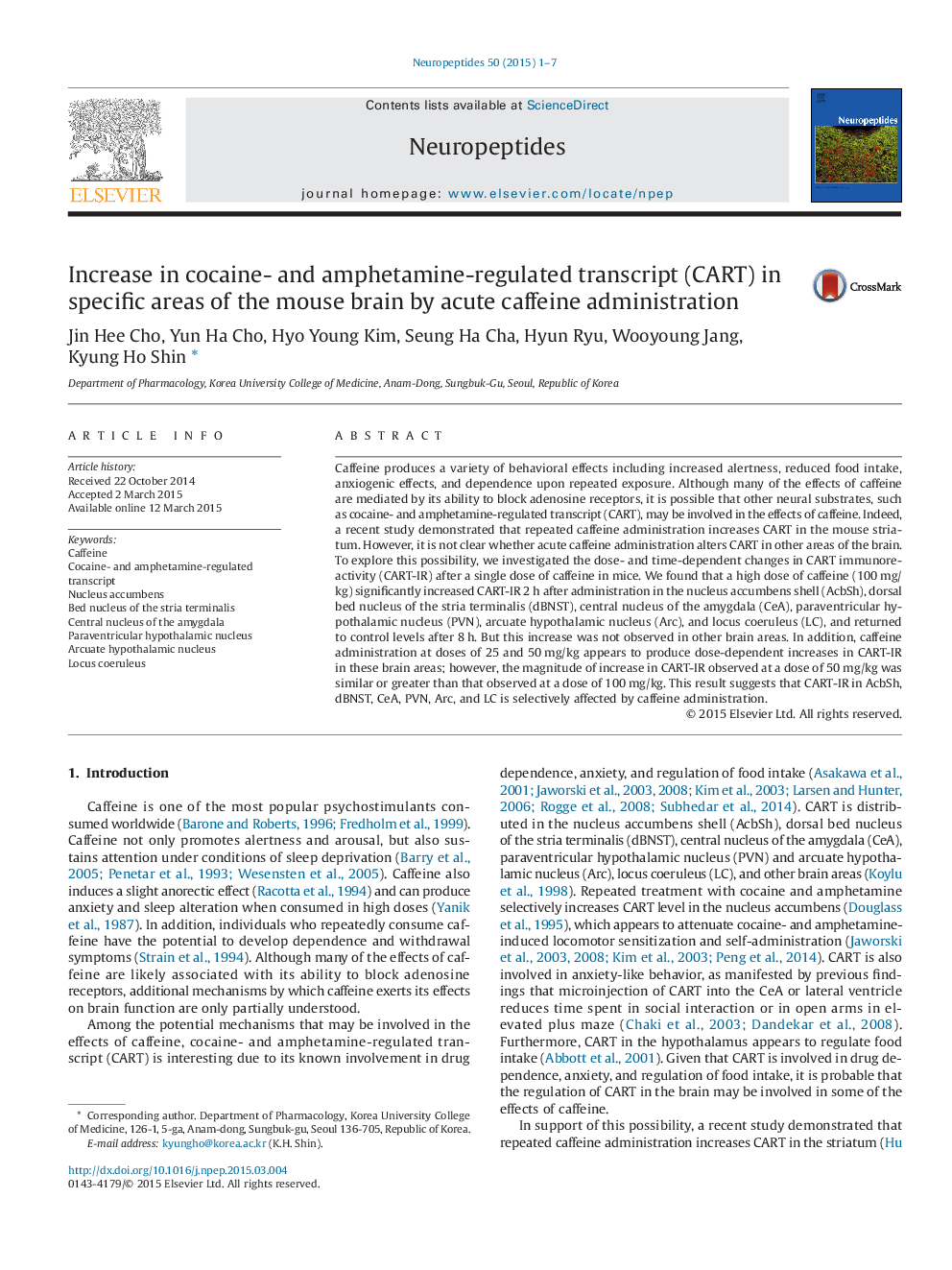| Article ID | Journal | Published Year | Pages | File Type |
|---|---|---|---|---|
| 2807997 | Neuropeptides | 2015 | 7 Pages |
•A single dose of caffeine increases CART in different brain areas in mice.•This increase of CART reaches its peak 2 h after caffeine administration.•CART increase is greatest when caffeine is administered at a dose of 50 mg/kg.
Caffeine produces a variety of behavioral effects including increased alertness, reduced food intake, anxiogenic effects, and dependence upon repeated exposure. Although many of the effects of caffeine are mediated by its ability to block adenosine receptors, it is possible that other neural substrates, such as cocaine- and amphetamine-regulated transcript (CART), may be involved in the effects of caffeine. Indeed, a recent study demonstrated that repeated caffeine administration increases CART in the mouse striatum. However, it is not clear whether acute caffeine administration alters CART in other areas of the brain. To explore this possibility, we investigated the dose- and time-dependent changes in CART immunoreactivity (CART-IR) after a single dose of caffeine in mice. We found that a high dose of caffeine (100 mg/kg) significantly increased CART-IR 2 h after administration in the nucleus accumbens shell (AcbSh), dorsal bed nucleus of the stria terminalis (dBNST), central nucleus of the amygdala (CeA), paraventricular hypothalamic nucleus (PVN), arcuate hypothalamic nucleus (Arc), and locus coeruleus (LC), and returned to control levels after 8 h. But this increase was not observed in other brain areas. In addition, caffeine administration at doses of 25 and 50 mg/kg appears to produce dose-dependent increases in CART-IR in these brain areas; however, the magnitude of increase in CART-IR observed at a dose of 50 mg/kg was similar or greater than that observed at a dose of 100 mg/kg. This result suggests that CART-IR in AcbSh, dBNST, CeA, PVN, Arc, and LC is selectively affected by caffeine administration.
